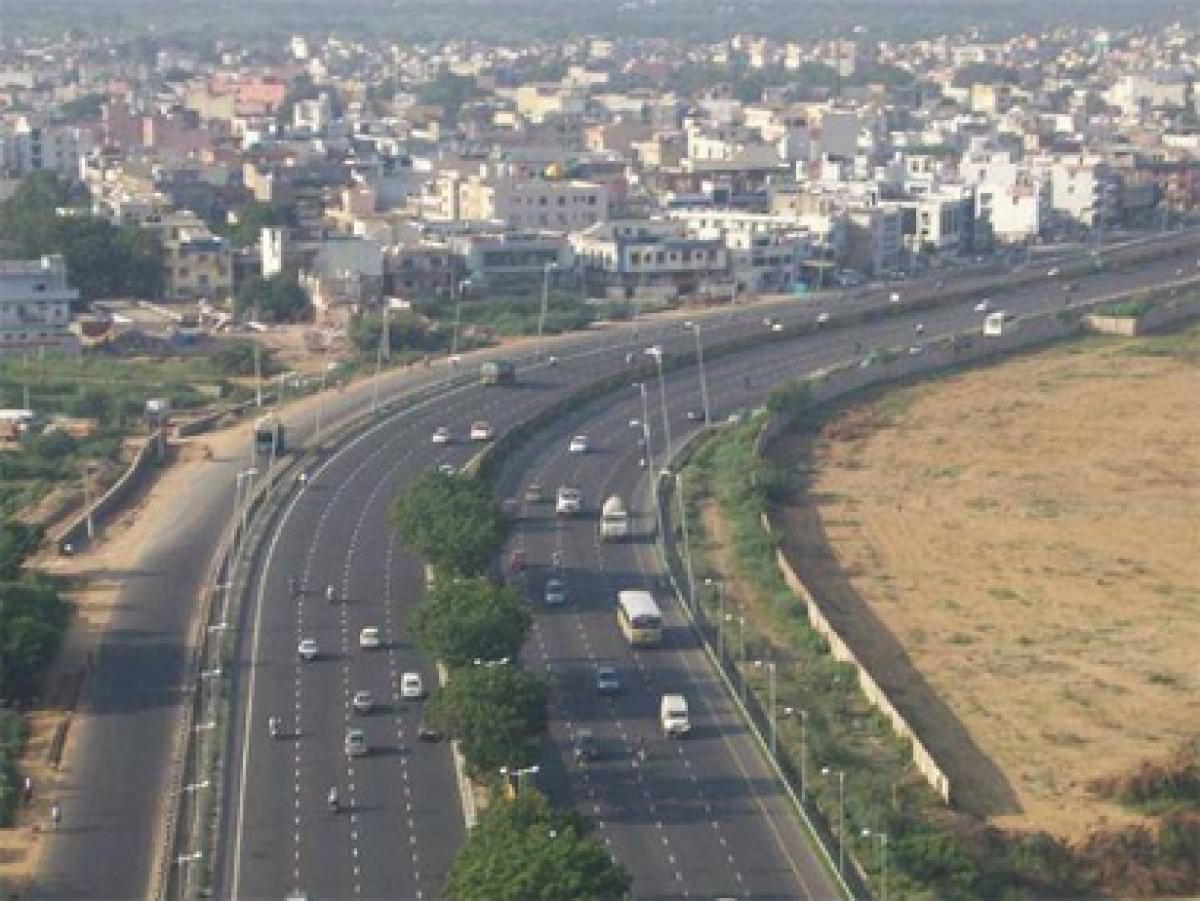Live
- ‘Get Set, Grow Summit 2024’ Focuses on Digital Detox for Families
- Stokes motivates his team to put in extra effort, says England pacer Potts
- From overcoming setbacks to leading India in U19 Women’s Asia Cup, Niki Prasad's amazing journey
- Driving Enterprise Security: Inside Venkata Reddy Thummala’s Leadership Journey
- Constitution debate: PM Modi hails 'Nari Shakti'; makes strong pitch for 'United Bharat’
- Abhijeet Bhardwaj: Revolutionizing Enterprise Analytics with Innovation and Expertise
- Bihar: Inquiry initiated against principal who went to buy veggies during school hours
- Press Sri Lankan Prez for release of Indian fishermen: TN Cong MP to EAM Jaishankar
- TN: DMK postpones executive meet due to heavy rains & Parliament session
- Porous silicon oxide electrodes can fix durability issues in batteries: Researchers
Just In
The Cleanliness challenge: Delays are a norm in India's project schedules


The union Government has seen two important announcements in the recent past. Under the flagship Smart City Mission, it recently announced the first tranche of cities which are to be developed into smart cities. Similarly, on feb 15, the government released the Swachh Sarvekshan-2016 which ranks 73 cities on cleanliness and sanitation.
The union Government has seen two important announcements in the recent past. Under the flagship Smart City Mission, it recently announced the first tranche of cities which are to be developed into smart cities. Similarly, on feb 15, the government released the Swachh Sarvekshan-2016 which ranks 73 cities on cleanliness and sanitation.
The first list includes 20 cities, none of which are from some of India's biggest states like UP, Bihar and West Bengal. Bhubaneswar, the capital of Odisha, has topped the rankings followed by Pune and Jaipur. The government has offered a fast-track window for next 23 cities to upgrade their proposals and submit them by April 15, to be included in the next tranche.
Speaking at the occasion, Urban Development Minister Venkaiah Naidu mentioned that an investment of Rs.50,802 crores has been proposed for selected smart cities and towns during the next five years. The first tranche was chosen through a transparent and competitive process according to Naidu.
The Swachh Sarvekshan-2016 had a list of cities with a population of more than 10 lakh. The best performing cities lie towards the south and west. Chandigarh and New Delhi were also in the top 10 of the cities considered for the latest round of Swachh Sarvekshan-2016. The east and some portions of the north had cities which have been found to be relatively filthier. Asansol (72) and Dhanbad (73) are at the bottom of the list.
However, the main challenge that confronts all the programmes of the government is that of execution and implementation. Implementation is a major challenge for all the projects that India is working on - be it highways, railways or refineries or even present and previous urban development projects in different spaces even for cleanliness.
This is because delays are a norm in India's project schedules. Rarely do projects get completed on time and if they do, they often become headlines. A few weeks ago, Prime Minister Narendra Modi rightly lamented the cost and time overruns that have plagued India's implementation capability in the past.
Similar is the case when one looks at the projects that were undertaken under the UPA government's Jawaharlal Nehru Urban Renewable Mission (JNNURM); one sees that a lot of cost and time overruns plagued them. A recent article in The Economic and Political Weekly (EPW) written by Amit Garg and Vidhee Kiran Avashia analyses this and points to the alarming statistics on them. Of the 538 projects examined by the scholars, 294 suffered from cost overruns and 303 suffered from time overruns - and 166 projects suffered from both cost and time overruns.
Their study also points to the startling fact that an astounding 36 percent of the urban projects suffered from both time and cost overruns. Their analysis offers a cautionary tale to the policymakers in India to look at what went wrong in the case of the previous urban projects.
There may be several reasons for India's implementation deficit. Some argue that in a democracy, things often require time as opposed to an autocracy. While there is some semblance of truth to this claim passed on as collective wisdom, mostly, it is a problem of coordination between agencies and precisely fixing responsibility.
That is the crux of the issue with respect to delays and implementation deficit in projects. Other reasons are lack of training to the people implementing projects on the ground, land acquisition laws and a host of legislations which prevent work. The government must move quickly to not only announce the next tranche of Smart Cities but also build systems and implementation capability to resolve the issues of implementation deficit.
Implementation within the smart cities/clean cities will be a major challenge as the underlying governance structures are where the core of the problem lies. This bridge between the municipal and the union level is a welcome one but much will depend on the implementation of projects on the ground. The focus on technology and public scrutiny to improve systems is another positive from the side of the government. The policymakers will do a host of good to learn from the successful and not so successful experiences of the previous administration. It is hoped in the process the present government is able to build clean, healthy and smarter cities.
By Amit Kapoor
(The article is co-authored with Sankalp Sharma, Senior Researcher at the Institute for Competitiveness, India. Amit Kapoor is Chair, Institute for Competitiveness & Editor of Thinkers. The views expressed are personal. Amit can be reached at [email protected] and tweets @kautiliya)

© 2024 Hyderabad Media House Limited/The Hans India. All rights reserved. Powered by hocalwire.com






